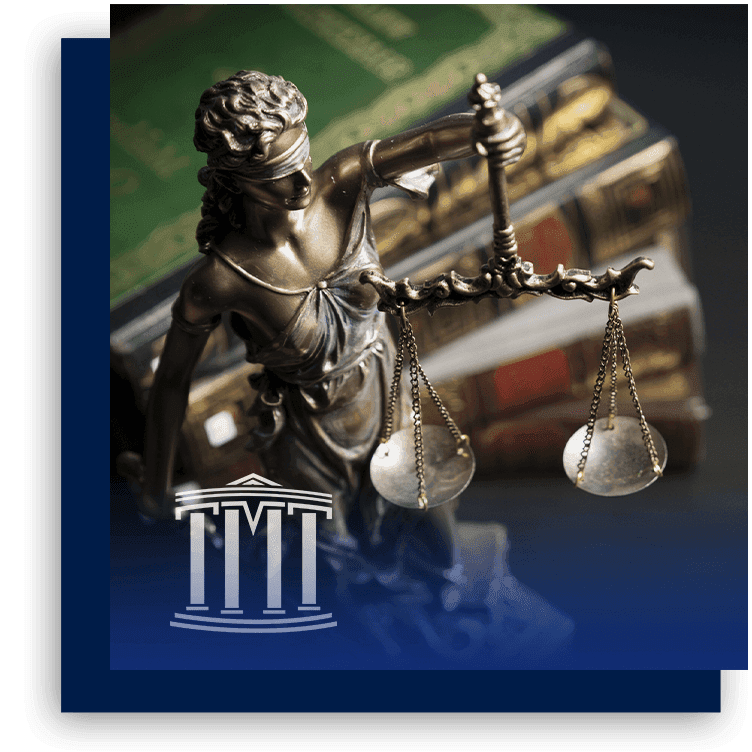
Serving Western North Carolina Since 1994 Get A Free Consultation

How Do State and Federal Regulations Influence Liability?
Both North Carolina law and federal regulations (via the FMCSA) govern commercial trucking. Violating a federal safety standard—like exceeding driving time limits—can establish negligence. Unfortunately, North Carolina’s contributory negligence law might allow defense teams to argue you played a small role in the collision. That’s why investigating rule violations thoroughly is key; if the truck driver or company violated known safety standards, it can shift focus away from any potential minor missteps on your part.


-
“David Teddy and his team are outstanding!!! WORTH EVERY PENNY!” - Nicholas D.
-
“David Teddy was more than worth the money... he actually took the time to listen.” - Rosslyn S.
-
“Daniel Talbert is a top-notch attorney... he has a never-give-up approach even when things look bleak.” - Roger T.
-
“Ralph is the epitome of what a lawyer should be.” - Melinda R.
Can Multiple Parties Be Held Responsible Simultaneously?
Yes. A truck driver might be individually negligent, but their employer can face “vicarious liability,” meaning the company is responsible for acts committed by employees in the course of their duties. If poor maintenance practices also played a role, a repair contractor might share blame. Cases involving multiple defendants can become intricate, but this approach can increase the likelihood of obtaining full and fair compensation—particularly if one party’s insurance policy limit isn’t enough to cover your damages.
How Do You Prove Liability in Trucking Cases?
Evidence collection is often a key aspect of 18-Wheeler accidents. In appropriate circumstances, an attorney can request driver logs, black box data, maintenance records, and witness statements. We may also consult with experts—like accident reconstruction specialists or engineers—to analyze skid marks, impact angles, or mechanical failure patterns. Thorough documentation can help show how the collision happened and which parties deviated from safety standards, thereby proving fault and potential legal liability for negligence.
During litigation at Teddy, Meekins & Talbert, we use discovery tools to force trucking companies to share evidence they might otherwise withhold, helping ensure a comprehensive picture of potential negligence and legal liability for your damages.
What If the Trucking Company Claims the Driver Is an Independent Contractor?
Many companies label drivers as independent contractors in an attempt limit liability. However, courts look beyond labels to the actual nature of the relationship. If the company exerts significant control over routes, schedules, and job performance, it could still be on the hook for the driver’s actions. Determining employee status can be pivotal; it might mean the difference between recovering from a large corporate insurance policy or having to rely on an individual driver’s assets.
Are Claims Handled Differently If the Truck Is Based Out of State?
Jurisdiction issues may arise when a trucking company is headquartered elsewhere. However, if the collision happened in North Carolina, local courts usually retain jurisdiction. The company’s insurance carrier must still adhere to North Carolina motor carrier laws. In some instances, federal courts could get involved if there’s diversity of citizenship or a certain amount in controversy, but many cases remain in the state court system, even when they originate in smaller Western NC counties.
How Does the Severity of Injuries Affect the Case?
Trucking collisions can cause life-altering injuries, like spinal cord damage or traumatic brain injuries or wrongful death claims, due to the massive forces involved. The more severe the harm, the higher the potential financial stakes for medical bills, long-term care, and lost earning capacity. Defense teams might contest the extent of your injuries or argue preexisting conditions in an attempt to reduce payouts. Detailed medical documentation, expert medical opinions, and evidence of lifestyle changes can become crucial in refuting these arguments.
At Teddy, Meekins & Talbert, we understand how devastating these injuries can be and work hard to accurately value claims so clients aren’t left with ongoing expenses that outstrip their compensation. Our goal is full and fair compensation for your losses.
Will My Case Likely Settle or Go to Trial?
Many cases do settle when liability is relatively clear, or the parties want to avoid lengthy litigation. However, if defendants challenge fault or the extent of damages, a trial might be necessary. Having a lawyer prepared to argue in court and advocate for your best interests can help strengthen your negotiation stance, as insurers realize you’re ready for a fight if they won’t offer a fair amount.
Your Western North Carolina 18-Wheeler Accident Lawyers: Teddy, Meekins & Talbert
Determining liability in a Western North Carolina trucking collision demands a careful look at driving practices, company policies, maintenance logs, and potentially more. Multiple entities—driver, employer, contractors, or manufacturers—may all share fault, making thorough investigations important if not essential. Whether your crash happened near Shelby, Rutherfordton, Asheville, Murphy, or elsewhere in Western NC, uncovering the details for liability coverage can be an important aspect securing proper compensation.
If you need guidance on identifying liable parties and building a claim tailored to your individual needs, contact Teddy, Meekins & Talbert at (704) 396-5155. Our team is dedicated to untangling complex trucking accident scenarios and pursuing outcomes that acknowledge the full scope of your injuries and losses.

